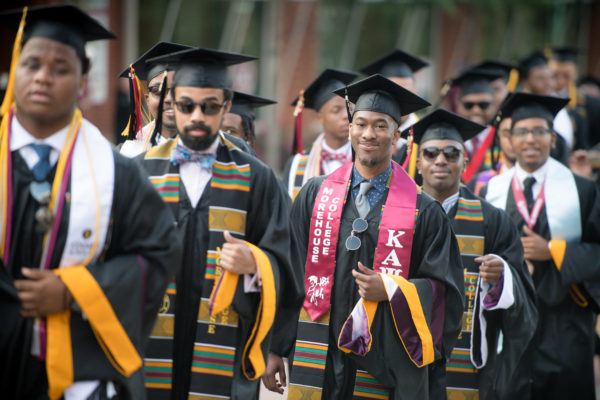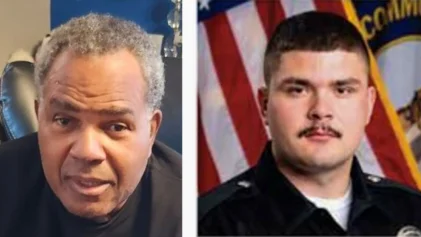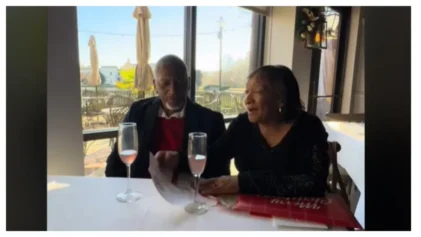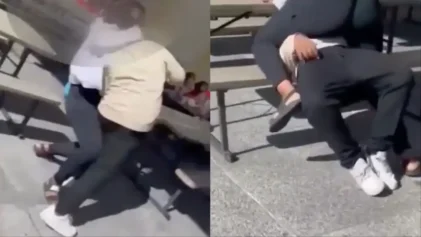A week after the U.S. Supreme Court terminated the use of affirmative action policies by colleges and universities in their admission process, several HBCU presidents are speaking out about the ruling and what it means for their schools.

The president of Clark Atlanta University, Dr. George French, offered his perspective on the high court’s decision, calling it “intentional” in an interview with ABC News.
“There is a large degree of disappointment within the HBCU constituency, and that is because this decision was intentionally, appears to be intentional, in eroding what was an effective remedy for racial disparities in our nation,” French said. “So we’re upset about it, but at the same time, we understand that this provides an opportunity for HBCUs to provide access to education for those who otherwise would not have it.”
French’s Atlanta University Center colleague David A. Thomas, president of Morehouse College also made a statement.
“This is a disservice to our nation and its commitment to equity and equality,” Thomas said in a letter to the Morehouse community.
“As a top feeder school for Black men entering prestigious graduate schools and MBA programs, this decision presents additional challenges for our students. At my alma mater, Yale University, the impact of this decision is already estimated to result in a 40% reduction in Black students,” the administrator said.
According to Thompson, attendance at predominantly white institutions often over-determine an individual’s access to “powerful and influential positions” pointing to “the resumes of our Supreme Court Justices and their clerks over the last 40 years” as evidence for this claim.
“We can also find it by reviewing the educational pedigrees of those politicians applauding the decision,” he added.
Helene D. Gayle, the newly installed president of Spelman College, another institution in the AUC consortium, called the decision “a gut-wrenching blow.”
“For Black people, the impact was not just a blow, it has dire consequences for economic and social mobility,” Gayle said before invoking Black people’s desire to have a top-notch education since the end of enslavement.
“Black people have relied on education, especially a higher education degree, as the pathway to opportunity and economic mobility. Yet these decisions by the high court stand to open the door to mechanisms that will kill the dreams of many Black students,” she said.
While the educators, representing only three of the nation’s 103 HBCUs, are critical of the move, they understand the opportunity it affords their institutions.
Gayle predicts there will be “a significant upsurge in the already ascending application and enrollment rates at these institutions.”
French sees the ruling as an opportunity for HBCUs to level up to meet the needs of students who may be denied entry to ivy league schools.
“… we need additional resources, as the HBCU community, to meet the needs of those students. Not just financial, but programmatic. For example, if you come to an HBCU for one of our traditional disciplines – law, medicine, education – that’s one thing. But if you come for thermonuclear science, we don’t have that capacity. So when our minorities are turned away from PWIs, based on this decision, they will have nowhere to go, unless we build the capacity at HBCUs.”
Many concur with the presidents.
Predominantly white institutions will also be impacted, particularly alumnae donations rooted in supporting school sports, according to journalist Chuck Hobbs.
Hobbs contends one only has to look at Florida’s ending of affirmative action through its “One Florida” initiative and see that not only is Black enrollment down, but so is the presence of Black athletes on teams that help pump money into the schools.
He quoted Florida State University vice president Brandon Bowden, who shared this concern in 2015 when the state moved to terminate affirmative action.
“There will be so few Black students on our campus that prospective students [who are Black] will choose not to come here because they see no one who looks like them.”
The University of Florida and the University of Southern Florida prove this to be true. Black enrollment in both schools is down between 4 percent from 2010 to 2021 because of the end of affirmative action.


